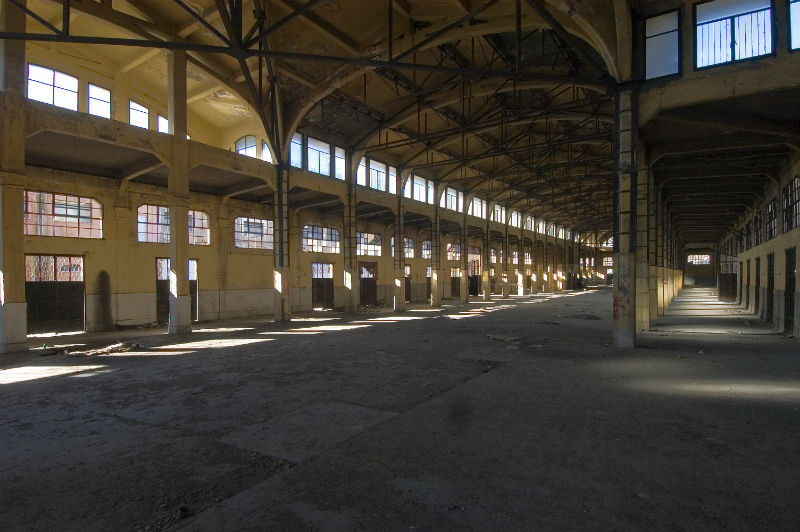
Despite the recent shift to e-commerce, real estate developers in the U.S. continue to spend over $10 billion annually on commercial properties and development. Thousands of new commercial spaces become available every year, with only about 10% remaining vacant. Clearly, small business owners are still interested in office space.
However, owners beware; commercial leases are quite different from typical residential leases. Both are legally binding contracts that represent an agreement between a renter and a tenant. Unlike a residential lease however, commercial leases have plenty of room for negotiation and compromise.
It’s in the best interest of the business owner to negotiate before signing their commercial lease. In these instances, it may be worthwhile to have an attorney review the lease and negotiate on your behalf. A poorly worded lease will not only endanger the owner’s business, but put their personal assets (things like their home, personal savings accounts, etc.) at-risk as well. A strong, attorney-reviewed agreement will provide protection for both parties, while minimizing the charges and fees for tenants and providing a way to resolve conflicts without litigation.
Five Provisions to Consider Before Signing
Commercial leases are negotiable documents that are best handled by a professional, experienced negotiator (ie. an attorney). Nonetheless, if you’re looking to sign a commercial lease without a representative, there are five particularly important provisions to be aware of:
1. Limits and Conditions regarding the Rental Use
It may seem obvious, but the lease must specify the intended use of the rental space. It should be noted that once the use is established in the signed-lease, other uses—even if they’re innocuous—are not legally permitted. For example, if the lease specifies the rental space be used to sell shoes, owners are legally restricted to shoe-sales (and thus may be unable to sell other related products, like sports equipment or outdoor wear). In general, before signing the lease, the owner should consider their future products and services. The concept of “use” also arises frequently when tenants want to sublet their rented space. Again, if the lease specifies that the space will be used to sell shoes, you cannot sublet to another business that sells something other than shoes. Neither you nor your sublets are permitted to use the rental space for anything other than what’s established in the lease.
2. Structure of Payment Responsibilities
Akin to residential leasing, some landlords are willing to cover non-rent expenses, like utilities or insurances. When it comes to commercial leases however, there’s an entire vocabulary to specify exactly who is responsible for which payments. For example, a “Single Net Lease” means the tenant is responsible for paying utilities and property tax, while the landlord will cover insurance, structural repairs, and general building costs. Another common type of lease is a “Triple Net Lease”, where the tenant is responsible for all building costs, except structural repairs. You’ll want to ensure these terms are clearly defined in the agreement before signing.
3. Personal Guaranties
Many landlords will structure the lease so that the tenant’s personal assets are liable for the business’s obligations under the agreement. This provision is non-negotiable for many landlords, however, there’s sometimes room for compromise. Even if owners can’t negotiate this condition, it’s important they realize what’s at-risk when they sign a legally binding agreement.
4. Common Area Maintenance (CAM) Charges
CAM charges vary from lease-to-lease and can be highly-negotiable. They are essentially fees paid by each tenant to maintain the common or shared areas of the property (things like bathrooms, hallways, outdoor spaces, storage areas, etc.). Landlords tend to ambiguously define CAM charges on-purpose, with the aim to pass various operating expenses as CAM charges. As a potential tenant, it’s important that the language regarding CAM charges is clearly defined before signing the lease. Ensure that there’s a maximum cap on CAM charges, and that you—as a tenant—are legally allowed to review the landlord’s CAM expense records. These things can all be specified in the lease.
5. Fall-Backs and Exit Strategies
Obviously, when two parties sign a lease, both expect the other to uphold their part of the agreement. Should the landlord be unable to maintain their duties midway through the contract, there must be terms in place to protect both parties. Likewise, should the tenant be unable to pay rent, there are options that can be established to avoid legal action. An attorney can draft agreeable terms and conditions that provide protection for both landlords and tenants.
Commercial Leases: Renters Beware
First-time commercial leasers must realize that business rentals are different from residential leases. Residential leases are relatively straight-forward, with nonnegotiable terms, predetermined fees, and strict conditions.
Commercial leases on the other hand tend to be nuanced and case-specific, leaving ample opportunity for negotiation and compromise. This is particularly true when the commercial property has numerous leasable spaces or extensive common areas, like shopping malls or large office complexes. Landlords of these larger commercial properties tend to charge tenants ambiguous and ever-increasing fees for things like security services, garbage pickup, maintenance, or general landscaping. The importance of clearly-defined terms and constructive negotiation cannot be overstated in these situations.
In any case, business owners looking to rent commercial space should be aware of these five provisions at a minimum. Owners that sign a lease without taking these provisions into consideration may be end-up paying unnecessary fees and putting their personal assets at-risk.
 May 21, 2019
May 21, 2019

